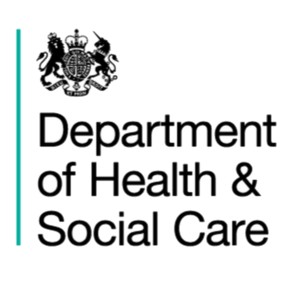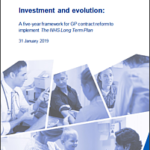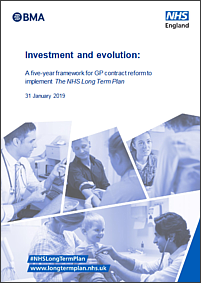 Guest blog by Dr Jeanelle de Gruchy, President of the Association of Directors of Public Health
Guest blog by Dr Jeanelle de Gruchy, President of the Association of Directors of Public Health
To its great credit, New Zealand has become the first country in the world to produce a “wellbeing budget” – a commitment to prioritise population wellbeing as the main mission of the government. A similar philosophy was adopted in Wales in 2015, with the Well-being of Future Generations Act requiring public bodies to think about the long-term impact of their policies on both people and places.…
Read more of this article



 Harnessing the power of social media to promote public health
Harnessing the power of social media to promote public health
 For the first time since Public Health England (PHE) came into being, musculoskeletal conditions have been mentioned in the
For the first time since Public Health England (PHE) came into being, musculoskeletal conditions have been mentioned in the 
 Prevention seems to have been the theme of my February. The possibility that a lot of the pain and disability of MSK conditions might be prevented, and that this is being taken seriously is an exciting prospect. Even where the conditions can’t be prevented, good self-management support can make a big difference to the impact of the condition. The Government is clear that the future sustainability of the NHS depends on prevention, and that it wants to improve healthy life expectancy by at least five extra years, by 2035.…
Prevention seems to have been the theme of my February. The possibility that a lot of the pain and disability of MSK conditions might be prevented, and that this is being taken seriously is an exciting prospect. Even where the conditions can’t be prevented, good self-management support can make a big difference to the impact of the condition. The Government is clear that the future sustainability of the NHS depends on prevention, and that it wants to improve healthy life expectancy by at least five extra years, by 2035.… 


 Since the NHS Long Term Plan (LTP) was published on 7 January 2019, the Universal Personalised Care: Implementing the Comprehensive Model has been published.
Since the NHS Long Term Plan (LTP) was published on 7 January 2019, the Universal Personalised Care: Implementing the Comprehensive Model has been published.
 Guest blog by Ms. Nuzhat Ali, National MSK Lead, Public Health England
Guest blog by Ms. Nuzhat Ali, National MSK Lead, Public Health England